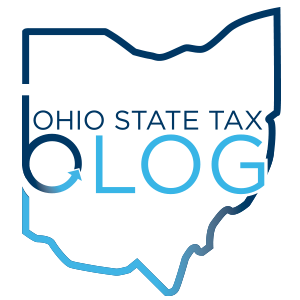Sales Tax Collection: Broad Marketplace Facilitator Laws Could Capture Unwary Taxpayers
Most states have recently passed laws requiring marketplace facilitator to collect tax on e-commerce sales by remote sellers made through the marketplace’s platform. Ohio, for example, broadly defines a marketplace facilitator as any entity that operates a marketplace and facilitates payment processes for goods or services. R.C. 5741.01(W). This definitions covers the usual suspects, such as Amazon, eBay, and Etsy, but also could capture many others that provide an online platform where third-party sellers make products or services available for purchase.
These marketplace facilitators are typically required to collect tax when they exceed the state’s economic nexus threshold. In most states, if exceeding $100,000 of annual gross sales or 200 separate transactions delivered into the state – including its own sales and those facilitated on behalf of other sellers – the marketplace facilitator will be treated as the seller of each facilitated sale and required to collect sales tax. Further, in Ohio, marketplace sellers (i.e., sellers who sell their goods and services through marketplace facilitators) may unintentionally create substantial nexus since its marketplace sales count towards Ohio’s economic nexus requirement, even if it is not required to collect tax on sales made through the marketplace. In other words, the remote seller must include its sales made through the marketplace in determining whether the nexus thresholds have been exceeded, but would only be required to collect on its direct sales to Ohio consumers.
Given modest nexus thresholds and broad, inconsistent definitions of marketplace facilitators, e-commerce platforms and businesses selling through them must take extra care to ensure it is complying with their sales tax collection obligations. If you have questions about how economic nexus or marketplace facilitator laws apply to your business, please contact a member of our experienced Taxation Practice Group today.
Attorney Steven A. Dimengo is Managing Partner of Buckingham, Doolittle & Burroughs, LLC. He helps clients with complicated tax challenges including Ohio sales/use, income, commercial activity and federal taxes and has represented clients before the Ohio Supreme Court. Steve can be reach at [email protected] or 330.258.6460.
Richard B. Fry III is a partner and Buckingham’s Taxation Practice Group Chair. He focuses on state and local tax compliance and controversies, including Ohio and multistate sales/use tax, commercial activity tax, and personal income tax issues. Rich can be reached at [email protected] or 330.258.6423
Nathan M. Fulmer is an associate in Buckingham’s Taxation Practice Group. He represents clients on a broad range of tax planning and controversy matters. His joint degree in taxation allows him to provide unique solutions when assisting clients on business matters. Nate can be reached at [email protected] or 330.258.6464.
About Buckingham, Doolittle & Burroughs:
Buckingham, Doolittle & Burroughs, LLC is a corporate law firm that counsels middle-market executives and business leaders all over Ohio and beyond. With offices in Canton, Akron, and Cleveland, Buckingham offers clients Business Law Reimagined through sophisticated and practical legal services. Serving the region for more than 100 years, Buckingham’s mission is to deliver meaningful experiences through the practice of law, exceed expectations in terms of service, counsel and business sense, and to offer continuous value to the industries, communities and clients they serve. For more information, news and updates, visit bdblaw.com.
